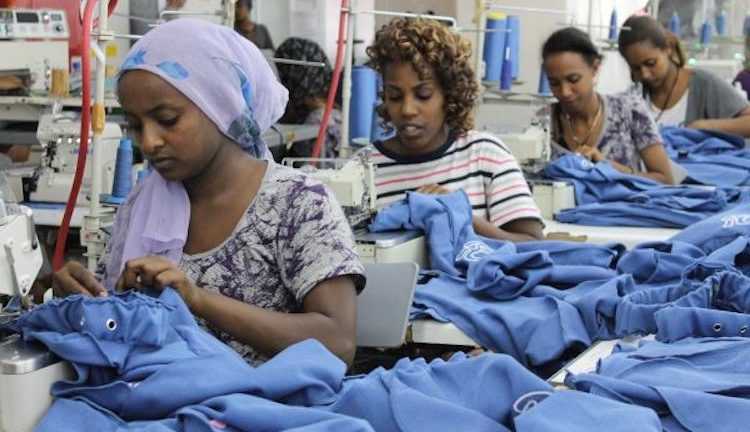By Lisa Vives, Global Information Network
NEW YORK | 12 February 2024 (IDN) — A trade preference program that lets African countries export products to the U.S. tariff-free has been suspended for Ethiopia, Mali and Guinea. President Joe Biden ended the benefit over alleged violations of human rights violations.
“The Biden-Harris Administration is deeply concerned by the unconstitutional change in governments in both Guinea and Mali, and by the gross violations of internationally recognized human rights violations by the Government of Ethiopia and other parties amid the widening conflict in northern Ethiopia,” the U.S. Trade Representative alleged on its website.
The trade program, known as AGOA, (the African Growth and Opportunity Act), has been the cornerstone of U.S. efforts to cultivate deeper economic relations with sub-Saharan Africa since 2000.
But many experts fault the program, charging it failed to live up to expectations. After an initial rise in trade, the region’s exports to the U.S. stagnated.
Gas and oil have dominated AGOA exports since 2001 and nearly 90 percent of non-energy U.S. imports from Africa in 2022 came from only 5 countries.
South Africa contributes the majority of exports – platinum, cars, car parts, and gold – at more than 56 percent in 2021.
Enacted in 2000 by President Bill Clinton, AGOA was seen as a way to boost growth and bolster democratic ideals across the continent.
Clinton claimed it would strengthen the U.S. economy by opening markets with “hundreds of millions of potential consumers” to American producers and help African countries develop and diversify their economies.
Only thirty-five countries signed up out of forty-nine potential beneficiaries in the region. Now, fourteen are suspended, including Burkina Faso, Ethiopia, Mali, Uganda, Niger, Gabon, South Sudan, Zimbabwe and the Central African Republic.
Biden now plans to remove four more countries this year, citing human rights violations in the Central African Republic and Uganda, and failures to protect political pluralism and the rule of law in Gabon and Niger amid coups d’état earlier this year.
Mauritania, however, will regain its status for “measurable progress on worker rights and eliminating forced labor.” This despite findings by Amnesty Int’l and Human Rights Watch that authorities continue to restrict human rights and subject journalists, bloggers and political activists to intimidation, arbitrary arrest and detentions. Anti-slavery laws are not enforced and a draft law on violence against women has not been passed.
Achieving narrow geopolitical interests
Since the U.S. removed Uganda from the AGOA trade deal, Uganda now has to find alternatives to plug the gap of nearly $10 million in export revenue.
According to Afronomics Law, in association with the African International Economic Law Network, the suspension of AGOA shifts the goal from promoting economic development through increased US-Africa trade to achieving narrow geopolitical interests.
Countries with bad human rights records will not necessarily change their practices because of trade sanctions.
When Ethiopia was cut from AGOA, its human rights record did not improve and poverty increased in Ethiopia. Approximately one million jobs were lost and some 200,000 low-income families were hurt – primarily women who had nothing to do with government.
Uganda maintains that terminating its AGOA status would harm farmers and small businesses in this impoverished African country.
Denying countries AGOA eligibility will harm vulnerable groups who are not responsible for the policies their governments are accused of, say Afronomics lawyers. Farmers, small enterprises and laborers who are not the authors of US-criticized policies suffer when AGOA eligibility is suspended. [IDN-InDepthNews]
Photo: African apparel workers. Source: Textile Focus
IDN is the flagship agency of the Non-profit International Press Syndicate.


